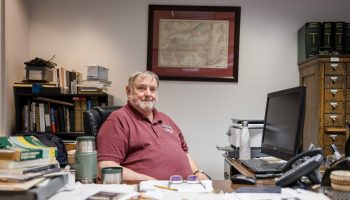
Cody Englander
Staff writer
As a professor, Mihir A. Desai finds the constantly evolving economy difficult to teach.
“Tried and true ideas are hard to propagate when so many current events run afoul of those truths,” he said.
At 10:45 a.m. today in the Amphitheater, Desai will examine financial markets, with a focus on immediate and long-term changes as part of Chautauqua Lecture Series’ Week Five theme, “Innovation in Capitalism: How to Respond to 21st-Century Challenges?” The title for this morning’s lecture is “The Era of Magical Thinking.”
Desai is the Mizuho Financial Group Professor of Finance at Harvard Business School and a professor of law at Harvard Law School. His focus includes tax policy, international finance and corporate finance.
His research has been cited in The Economist, BusinessWeek, The New York Times and other publications. Desai has written for practitioners in the Harvard Business Review on the role of the global corporation, and how to reform the U.S. tax system.
He has testified in front of Congressional bodies, most recently to the Senate Finance Committee on corporate tax reform and inversions. Desai is currently a research associate in the National Bureau of Economic Research’s Public Economics and Corporate Finance Programs.
In “A Conversation with Harvard Business School Online Professor Mihir Desai,” a video from 2021, he proposed the idea that finance is obscure, demonized and intimidating for many. He suggested demystifying finance.
The economy undergone numerous changes throughout the Trump Administration, which has done little for the consistency Desai believes is crucial for a strong economy.
“They shouldn’t change under administrations, but this administration is influencing markets with new regulations and deregulation,” he said.
These markets will likely see more developments with additional regulations — or deregulations — throughout the Trump presidency. Oftentimes, different administrations bring in different policies. Desai emphasized how this has been prevalent in recent years, a topic he plans to touch on in his lecture.
“I want to discuss just how odd these two decades have been and how they’ve changed the nature of the American economy and corrupted financial markets,” he said.
In a 2012 interview with Harvard Magazine titled “Compensation Practices and Incentives: Mihir A. Desai,” the Harvard professor suggested the competitiveness of the U.S. economy is connected to the productivity of American workers, and how corrupted markets have led to him questioning allocation processes and incentives facing managers and investors.
Since 2012, the economy has changed. A shift in economic values is what Desai describes as the “thesis of the talk” today.
“Financial markets are now dominated by activities that are only peripherally associated with value creation,” he said. “While such activities were always present, they have moved from the periphery to the core of American capitalism.”
Value creation has always been a part of American capitalism, but has now transformed into the core of the American financial market.
“Financial markets are the lifeblood of the American economy — they send us signals about what to do and how to behave,” Desai said. “They are the primary means by which we allocate the most precious resources we have.”
The financial markets control America’s resources. The American economy is complex, with few historical or modern comparisons. Desai anticipates exploring these ideas in speaking to the Chautauqua crowd this morning.




